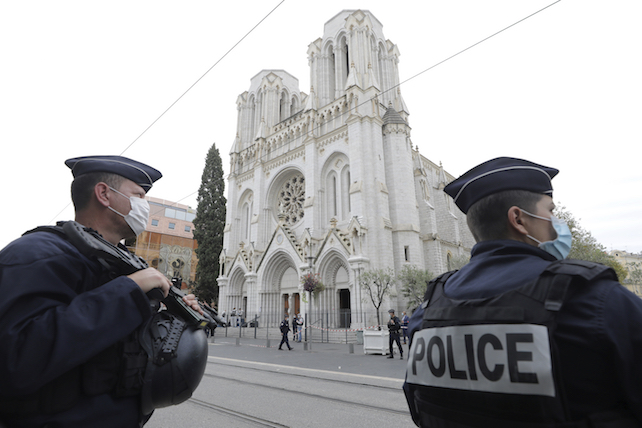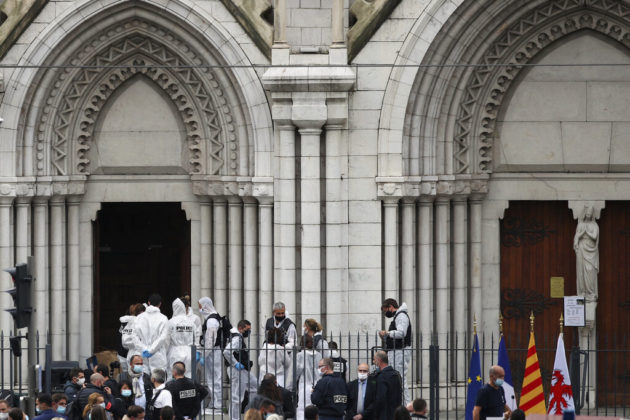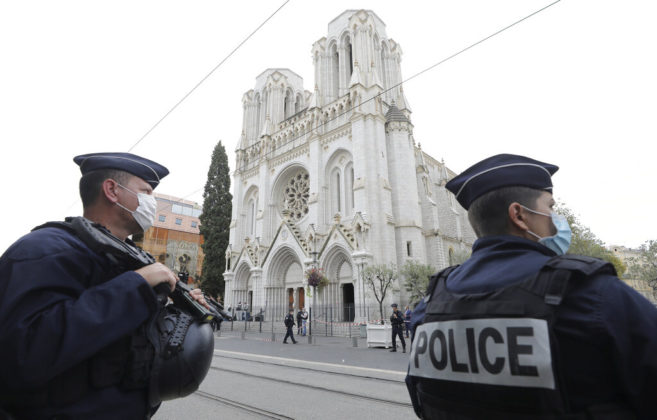The Gospel Is for All Kinds of People, So Why Not You?
For this purpose I was appointed a herald and an apostle—I am telling the truth, I am not lying—and a true and faithful teacher of the Gentiles (1 Tim. 2:7, NIV).
Paul was “appointed a herald and an apostle… to the Gentiles.” “Gentiles” means all the nations of the world outside of Israel. It’s hard for us to grasp how astonishing this was in the early church. God made a covenant with Israel so, to many people, the God of the Bible was the God of Israel. When Paul says “I was appointed an apostle to the Gentiles”, he has to add “I am telling the truth, I am not lying.”
Paul’s Missionary Strategy
Paul had three roles throughout his life as a missionary:
a.) a herald—wherever he went, he proclaimed the gospel.
b.) an apostle—a pioneer sent to plant churches where they did not exist.
c.) a teacher of the true faith. He established the church by teaching truth and refuting error.
Today, there are millions of people who would say that Christianity is the religion not of the Jews, but of “the West.” But gospel churches take their stand with Paul and say, “The good news is for all nations.” Our calling is to herald the true faith to all nations. Why?
Preach the gospel to all people because Christ died for all people.
This is good, and pleases God our Savior, who wants all men to be saved and to come to a knowledge of the truth. For there is one God and one mediator between God and men, the man Christ Jesus, who gave himself as a ransom for all men–the testimony given in its proper time” (1 Tim. 2:3-6).
This is a marvelous statement of God’s redeeming purpose in Jesus Christ. And there is an important discussion about what Paul means when he says that “God wants all men to be saved” and that “Christ gave himself as a ransom for all men.” Does “all” mean “every single person”? Or does “all” mean “all kinds of people”?
People come to different conclusions on this, but I’m convinced that “all” means “all kinds of people.” And I believe that for three reasons:
1. That’s what “all” means in the beginning of 1 Timothy.
First of all, then, I urge that supplications, prayers, intercessions, and thanksgivings be made for all people (1 Tim. 2:1).
God does not expect us to pray for every single person in the world, but to pray for all kinds of people in the world.
2. The Bible never suggests every single person will be saved.
On the Last Day, some will enter everlasting life while others go to their everlasting destruction (Matt. 25:46).
3. The word “ransom” in verse 6 means the payment of a price.
If Christ paid for the sins of “every single person,” hell would be filled with people whose sins had already been paid for.
That’s why I believe that when Paul says “all” he means “all kinds of people” and not “every single person.” That leads to this wonderful application: God wants “all kinds of people” to be saved. Christ gave his life to ransom all kinds of people. There will be people like you in heaven, so why not you?
“All People” Means You
In Heaven, there will be people with the highest degrees and the greatest minds, and there will be people who never learned to read or write. There will be people who earned millions of dollars, and people who lived all their lives in abject poverty. There will be people from stable families and people from dysfunctional families.
There will be people with your personality type in heaven—so why not you? There will be people from your race, people who speak your language, so why not you? There will be people who were once caught in every kind of vice known to mankind, but have been redeemed by the blood of Christ, so why not you?
“There is one God and one mediator between God and men, the man, Christ Jesus” (1 Tim. 2:5), so that means that Christ is the mediator for you. God wants people like you to be saved. Christ gave His life as a ransom for people like you.
Why not come to Christ and trust Him as your Redeemer today? If you come to Christ, He will never turn you away.
The gospel fires missions because Christ died for all. If you believe that all roads lead to God, there is no reason for world mission. People can find their own way. But Paul says that there is one mediator between God and man. If there is one mediator, there must be one gospel. If there is one gospel, it must be for all people.
Therefore, let’s renew our commitment to a ministry of the Word and prayer on a global scale. That’s the passion of a gospel-centered church.
_____
This article is adapted from Pastor Colin’s sermon, “Gospel Ministry”, from his series, 10 Distinctives of a Gospel-Centered Church.
For this purpose I was appointed a herald and an apostle—I am telling the truth, I am not lying—and a true and faithful teacher of the Gentiles (1 Tim. 2:7, NIV).
Paul was “appointed a herald and an apostle… to the Gentiles.” “Gentiles” means all the nations of the world outside of Israel. It’s hard for us to grasp how astonishing this was in the early church. God made a covenant with Israel so, to many people, the God of the Bible was the God of Israel. When Paul says “I was appointed an apostle to the Gentiles”, he has to add “I am telling the truth, I am not lying.”
Paul’s Missionary Strategy
Paul had three roles throughout his life as a missionary:
a.) a herald—wherever he went, he proclaimed the gospel.
b.) an apostle—a pioneer sent to plant churches where they did not exist.
c.) a teacher of the true faith. He established the church by teaching truth and refuting error.
Today, there are millions of people who would say that Christianity is the religion not of the Jews, but of “the West.” But gospel churches take their stand with Paul and say, “The good news is for all nations.” Our calling is to herald the true faith to all nations. Why?
Preach the gospel to all people because Christ died for all people.
This is good, and pleases God our Savior, who wants all men to be saved and to come to a knowledge of the truth. For there is one God and one mediator between God and men, the man Christ Jesus, who gave himself as a ransom for all men–the testimony given in its proper time” (1 Tim. 2:3-6).
This is a marvelous statement of God’s redeeming purpose in Jesus Christ. And there is an important discussion about what Paul means when he says that “God wants all men to be saved” and that “Christ gave himself as a ransom for all men.” Does “all” mean “every single person”? Or does “all” mean “all kinds of people”?
People come to different conclusions on this, but I’m convinced that “all” means “all kinds of people.” And I believe that for three reasons:
1. That’s what “all” means in the beginning of 1 Timothy.
First of all, then, I urge that supplications, prayers, intercessions, and thanksgivings be made for all people (1 Tim. 2:1).
God does not expect us to pray for every single person in the world, but to pray for all kinds of people in the world.
2. The Bible never suggests every single person will be saved.
On the Last Day, some will enter everlasting life while others go to their everlasting destruction (Matt. 25:46).
3. The word “ransom” in verse 6 means the payment of a price.
If Christ paid for the sins of “every single person,” hell would be filled with people whose sins had already been paid for.
That’s why I believe that when Paul says “all” he means “all kinds of people” and not “every single person.” That leads to this wonderful application: God wants “all kinds of people” to be saved. Christ gave his life to ransom all kinds of people. There will be people like you in heaven, so why not you?
“All People” Means You
In Heaven, there will be people with the highest degrees and the greatest minds, and there will be people who never learned to read or write. There will be people who earned millions of dollars, and people who lived all their lives in abject poverty. There will be people from stable families and people from dysfunctional families.
There will be people with your personality type in heaven—so why not you? There will be people from your race, people who speak your language, so why not you? There will be people who were once caught in every kind of vice known to mankind, but have been redeemed by the blood of Christ, so why not you?
“There is one God and one mediator between God and men, the man, Christ Jesus” (1 Tim. 2:5), so that means that Christ is the mediator for you. God wants people like you to be saved. Christ gave His life as a ransom for people like you.
Why not come to Christ and trust Him as your Redeemer today? If you come to Christ, He will never turn you away.
The gospel fires missions because Christ died for all. If you believe that all roads lead to God, there is no reason for world mission. People can find their own way. But Paul says that there is one mediator between God and man. If there is one mediator, there must be one gospel. If there is one gospel, it must be for all people.
Therefore, let’s renew our commitment to a ministry of the Word and prayer on a global scale. That’s the passion of a gospel-centered church.
This article originally appeared here.























The Founder of IF Gathering Responds to Jen Hatmaker’s Comments on Same-Sex Marriage
*This article originally appeared on JennieAllen.com. Used by permission.
This week my dear friend Jen answered an important question in an Internet article:
“Do you think a homosexual relationship could ever be holy?”
She responded, “I do.” And, not surprisingly, my phone and inboxes started to blow up.
Many want me to issue a statement, because their local churches around the world have entrusted us with their women. I have a few drafts open on my computer, but this is so much more than a statement for me. This is not about some “Christian celebrity” out there, this is my friend whom I have logged a lot of life with—including hours over the past many months about this very topic. While we disagree on this important issue, Jen and I love each other and agree on so many things. Jen speaking at IF Gathering isn’t even on the table, because she took herself out of IF many months ago for reasons that are her own.
Concerning where IF and I land here: Nothing has changed. I lean on 2,000 years of church history and we continue to hold an orthodox view of marriage. Our commitment to Scripture is a guiding value: We believe the God of the Universe reveals and defines Himself through His Word. We believe the Scriptures, both Old and New Testament, are verbally inspired by God, fully trustworthy and of supreme and final authority in what they say. (Including in regards to sexual ethics.)
And guess what? If you disagree with that or if you have yet to land on the above statement—we are also deeply committed to building a safe place for you and all people to come and experience and know Jesus and consider Him. All people are welcome at IF—I just want to be clear that from the stage we are giving you the Bible and Jesus when you come.
What the above sentences don’t say is that each time I attempted to write a “statement,” I cried, eventually falling asleep because I was physically exhausted trying to put down words that might be used to drive a relational wedge between me and someone I love so dearly and hurt members of the LGBTQ community, many who are friends.
IF exists because Jesus’ invitation to us is not “clean up your life, then you can come to me.” We all bring something different to the table, and we allow Jesus to meet with us where we are, transform us and follow where He leads.
When IF began three years ago, I believed the way through for us would always be to keep things SIMPLE and PURE. Humbly focus on the BIBLE and JESUS. We would hold tightly to the Nicene Creed which has defined orthodoxy for nearly 2,000 years. See, we aren’t the local church and so we didn’t have to speak into every topic…this would not be a time to gather around the issues, this would be a place to gather around Jesus.
Was it naive? You bet.
Except that three years later, I see it happening…online in Facebook groups, in cities where 20-30 churches are coming together, at dinner tables over a meal and intentional honest conversations, and this past February over a million women gathered from nearly every denomination in Christendom and in over 125 countries around Christ. You see, even in the messiness of it all I’m more convinced than ever that God is using our humble offerings of tools and experiences for women to grow as disciples and make disciples.
And none of that has changed.
Church, this issue of homosexuality is a difficult one for us right now, and it’s not because the Bible is not clear on the issue. The difficulty is because it is not an issue—it is people. And people we love.
It is requiring something we are not well practiced in—holding the tensions of grace and truth.
We have a decent amount of practice with grace. We have more practice dumping “truth” everywhere, but mixing the two together feels so impossible we usually just choose one. Jesus was described as “full of grace and truth” (Jn.1:14).
This isn’t easy. Most of God’s callings on my life actually require God in my life.
He didn’t build us to hold all the tensions and live them out perfectly. I want to say this clearly: Friends, in some way we all are getting this wrong.
We’re getting this wrong, because we aren’t Jesus. But we do have Jesus. We have this model of a man so radically willing to lay His life down for others, He did so. He walked with all types of people, in grace and truth, and used less words than we do. And we have His Word and His Spirit in us to help us do the same.
I’ve got enough planks in my eye to keep me busy for my short years here.
I have seen hate rise up in my heart toward someone else.
I have chosen comfort rather than fighting injustice.
I have lived out of fear of man instead of fear of God.
I have wanted to be understood rather than seeking to understand.
I have shrunk back when I should have stood up.
I have stood up when I should have shut up.
Yet, I also have tasted the depths of Jesus’ great and unending love for me.
“But God, being rich in mercy, because of the great love with which he loved us, even when we were dead in our trespasses, made us alive together with Christ—by grace you have been saved.” Ephesians 2:4-5
That is who IF:Gathering is and that is who we will remain—if you are a sinner in need of grace, if you are someone tired of the division, if you are someone craving God and a sisterhood to follow Him with…come on. You are welcome here.
Church—I don’t know how we navigate all of this perfectly today…but I do know how it turns out forever. Those who have put their faith in Jesus—we do life together for the rest of eternity.
So, where we can all agree: Let’s do better here.
Let’s remember we are talking about people’s lives.
Let’s seek to understand.
Let’s please stop demonizing each other no matter where they fall.
Let’s lean on Jesus more than we ever have, to hold these tensions more graciously, and let’s hold to God’s Word as we do.
Let’s confess our own sin rather than sitting on the Internet speaking up about everyone else’s.
I believe in us, church.